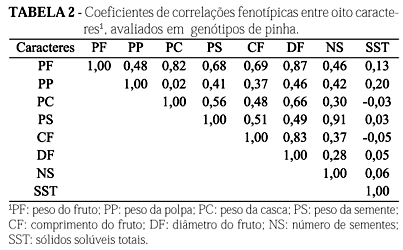Nowadays Brazil is an important productor of tropical fruits, especially sugar apple. The sugar apple is widely grown in all Brazilians states. An inadequate pollination is one of the factors limiting the commercial production of sugar apple fruits. In order to study the effects of artificial pollination were used 20 plants from a commercial orchad of sugar apple originated from Nova Porteirinha, Minas Gerais. The flowers were pollinated in the female stage using a number two brush. The experiment was performed in a randomized design, with six treatments composed by different times of artificial pollination (5:00, 6:00, 7:00, 8:00, 9:00 and 10:00 o'clock). Three months after pollination the fruits were harvest and store at room temperature. The following characteristics were evaluated: soluble solids content; pulp, skin and seed mass; seed number; fruit uniformity; fruit set percentage; lenght, diameter and mass of fruit. The most efficient treatments to fruit set and fruit mass were obtained between 6:00 and 10:00 o'clock. Soluble solids content was not affected. Positive and significant phenotypic correlations were observed for the traits pairs: fruit mass and diameter and fruit mass and skin mass.
sugar apple; flowering; correlations


